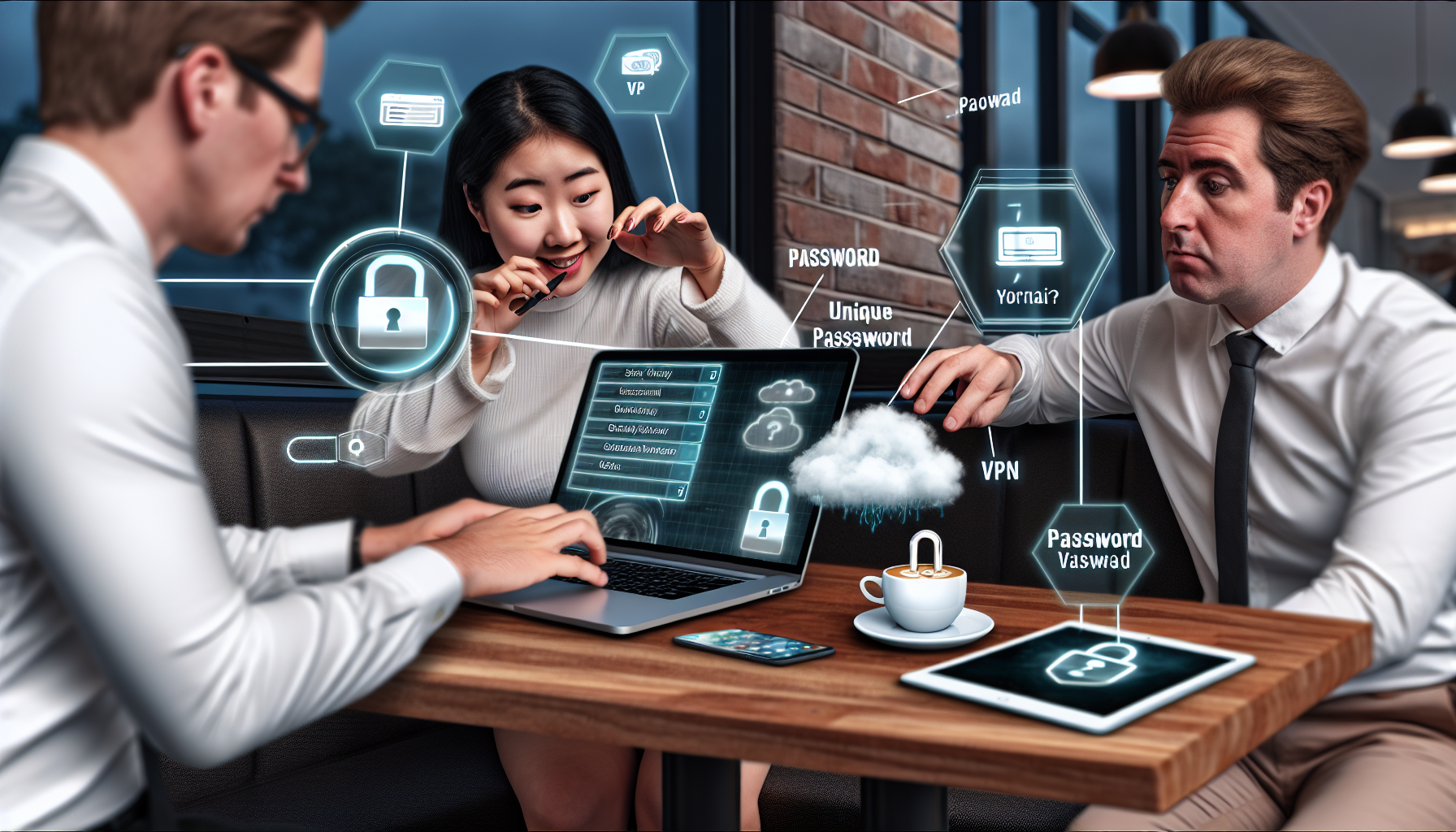Traveling as a digital nomad offers the unparalleled thrill of experiencing new cultures and landscapes while earning a living. However, this lifestyle comes with its own set of challenges, especially when it comes to keeping your devices secure. Imagine losing access to your professional and personal data while on the road—it’s a nightmare scenario! That’s why it’s crucial to ensure the safety of your devices. So, how do you go about this? Let’s dive into some essential strategies that can help you secure your devices while traveling as a digital nomad.
Key Takeaways:
- Use a strong and diverse set of passwords for all your accounts.
- Enable two-factor authentication for an added layer of security.
- Utilize a Virtual Private Network (VPN) to secure your internet connection.
- Regularly back up your data to multiple cloud services.
- Physical security matters—keep your devices safe from theft or damage.
Choose Strong and Diverse Passwords
Secure Password Practices: It’s tempting to use one password for all your accounts, but this is a risky habit. Create complex, unique passwords for different sites to bolster your security. Utilize password management tools like LastPass or 1Password to keep track of them without losing your mind.
Personal Example: While hopping between co-working spaces in Bali, I used to keep my passwords on a physical notepad. One day, I left it at a café, leaving me in a state of panic. Since then, password managers have been a game-changer.
Enable Two-Factor Authentication (2FA)
Beyond Passwords: Two-factor authentication provides an added layer of security that can make a difference. Basically, even if someone gets hold of your password, they’ll need another form of verification to access your accounts.
Expert Opinion: “Two-factor authentication significantly reduces the risk of account compromise,” says cybersecurity expert John Doe.
Use a VPN for Secure Internet Connection
Stay Safe Online: Public Wi-Fi networks are often unsecured, making them a hotspot for hackers. A VPN encrypts your internet connection and hides your online activities, keeping your information private.
Personal Example: Traveling through Lisbon, I often used public Wi-Fi to work from cozy cafés. A VPN ensured that I didn’t sacrifice security for comfort.
Regularly Back Up Your Data
Never Lose Your Work: Back up your data to multiple cloud services like Google Drive, Dropbox, or iCloud. This way, you won’t lose all your important documents if something happens to your device.
Personal Example: During my third month in Buenos Aires, my laptop crashed. Luckily, I had everything backed up to Google Drive, and my projects didn’t suffer.
Physical Security of Your Devices
Reduce Theft Risks: Always be cautious about where you leave your devices. Use anti-theft backpacks, laptop locks, and never leave your gadgets unattended.
Expert Insight: “Physical security is often overlooked but vital,” says security enthusiast Jane Smith. “A few simple precautions can save you a lot of headaches.”
Comparison Table: VPN Solutions
| Feature | ExpressVPN | NordVPN | CyberGhost |
|---|---|---|---|
| Number of Servers | 3,000+ | 5,000+ | 6,500+ |
| Encryption | AES-256 | AES-256 | AES-256 |
| Monthly Price | Starting at $12.95 | Starting at $11.95 | Starting at $12.99 |
| Unique Feature | Best speed | Best for privacy | User-friendly |
Living or Experiential Tips
Stay Organized: Keep a digital and physical checklist of all your essential devices and accessories. Make sure you have a backup plan in case any of these items are stolen or lost.
Travel Light: Only carry necessary gadgets. The less you have, the easier it is to secure everything.
Emergency Protocols: Have a plan for what to do if your device is lost or stolen. This can include remotely wiping your data with tools like Find My iPhone or locking accounts from a management dashboard.
Exploring different cultures while working remotely can be incredibly rewarding, but not at the expense of jeopardizing your digital security. Secure your passwords, enable two-factor authentication, use a VPN, regularly back up your data, and take physical precautions to keep your devices safe. To dive deeper into digital security, consider consulting reliable resources like Krebs on Security or the Electronic Frontier Foundation.
FAQ
Q1: What is the best VPN for digital nomads?
A: The best VPN depends on your specific needs, like speed, privacy, and user interface. Popular options include ExpressVPN, NordVPN, and CyberGhost.
Q2: How often should I back up my data?
A: Ideally, you should back up your data daily or at least weekly. Automating this process with cloud services can make it easier.
Q3: Are free Wi-Fi networks safe to use?
A: Free Wi-Fi networks are generally not secure. Always use a VPN when connecting to public Wi-Fi to protect your online activities.
For more information on how to secure your digital life as a nomad, check out Krebs on Security and the Electronic Frontier Foundation.
Enjoy your travels, and stay secure!
